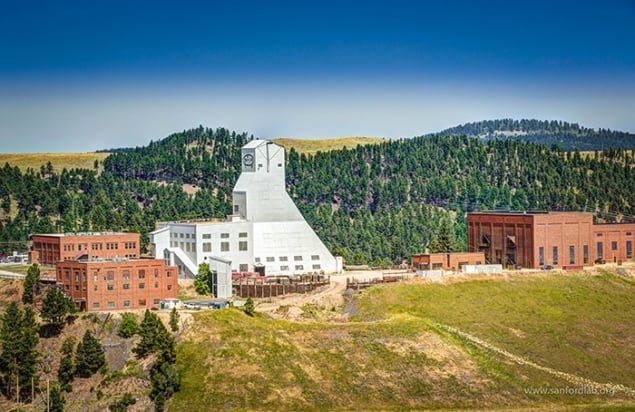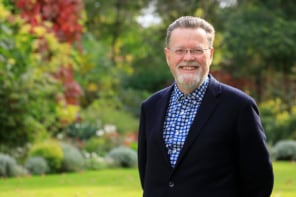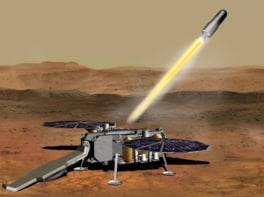
The UK government will invest £65m towards a new US neutrino facility that is being built at the Sanford Underground Research Facility in Lead, South Dakota. The $1.5bn Long-Baseline Neutrino Facility (LBNF) will study the properties of neutrinos in unprecedented detail, as well as the differences in behaviour between neutrinos and antineutrinos. The UK–US agreement was signed yesterday by Jo Johnson, the UK’s science minister, and Judith Garber, who is US acting assistant secretary of state for oceans and international environmental and scientific affairs.
More than 1000 scientists from 31 countries are involved with the LBNF. It will take about a decade to build and once complete will be the world’s highest-intensity neutrino beam. The centrepiece of the LBNF is a four-storey-high neutrino detector – dubbed the Deep Underground Neutrino Experiment (DUNE) – that will be built almost 1500 m underground in South Dakota. DUNE will measure the neutrinos that are generated by Fermilab, which lies around 1300 km away just outside Chicago. The detector is made up of four tanks that are each filled with 17,000 tonnes of liquid argon. While the civil-construction costs for DUNE will be met by the US, international partners are expected to contribute about $500m towards the design and construction of the accelerator and detector.
“Significant and exciting”
“This investment is a significant and exciting step for the UK that builds on UK expertise,” says Brian Bowsher, chief executive of the Science and Technology Facilities Council (STFC), which is managing the UK’s investment in the facility. “International partnerships are the key to building these world-leading experiments, and the UK’s continued collaboration with the US, through STFC, demonstrates that we are the science partner of choice in such agreements.”
Fermilab director Nigel Lockyer added that the agreement “ensures that LBNF/DUNE will have great scientific and technical strength on the team”.
The funding for the LBNF is part of the first-ever UK–US science and technology agreement, also announced yesterday, which will pave the way for closer future research collaborations.



